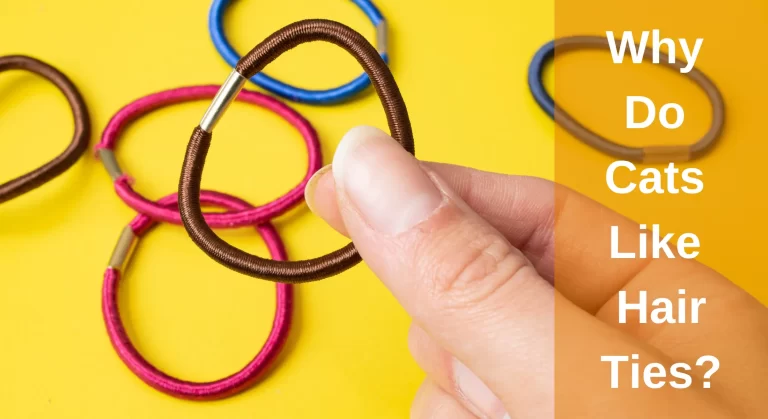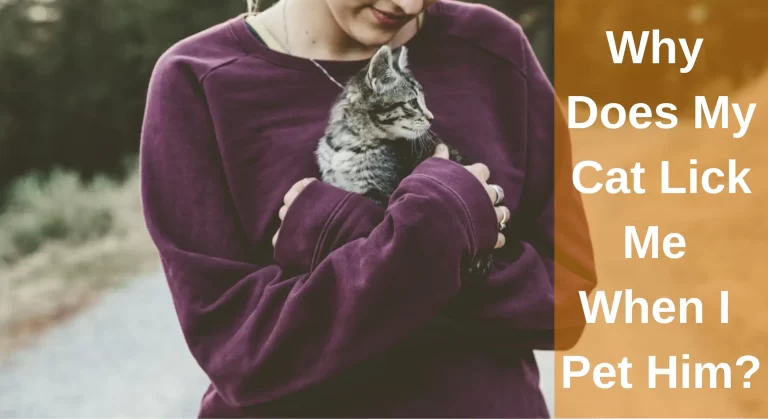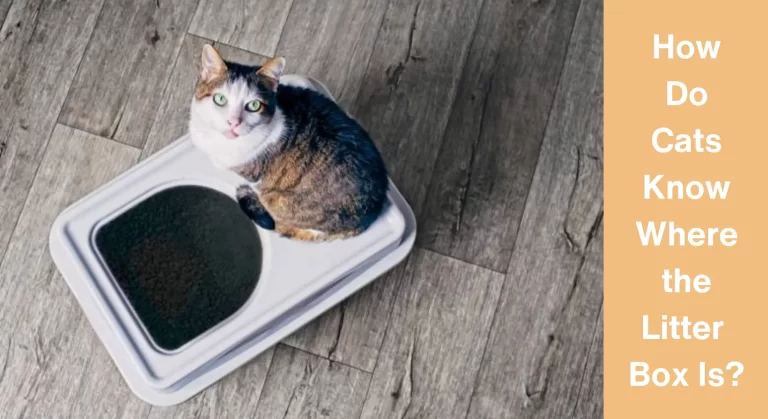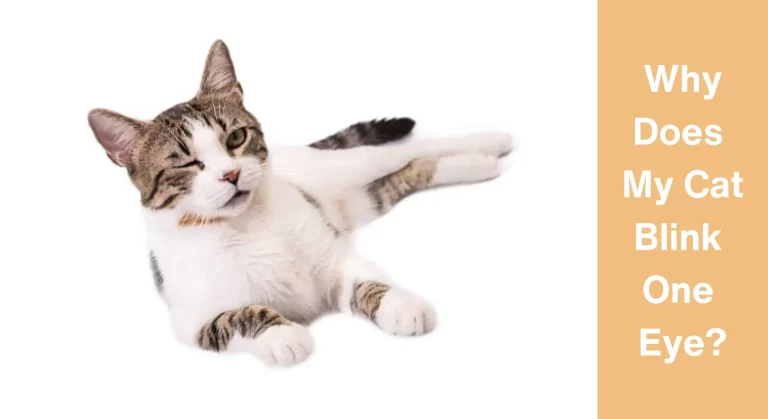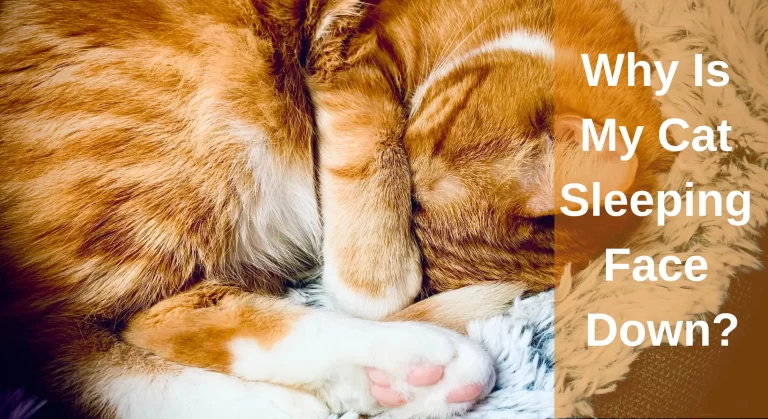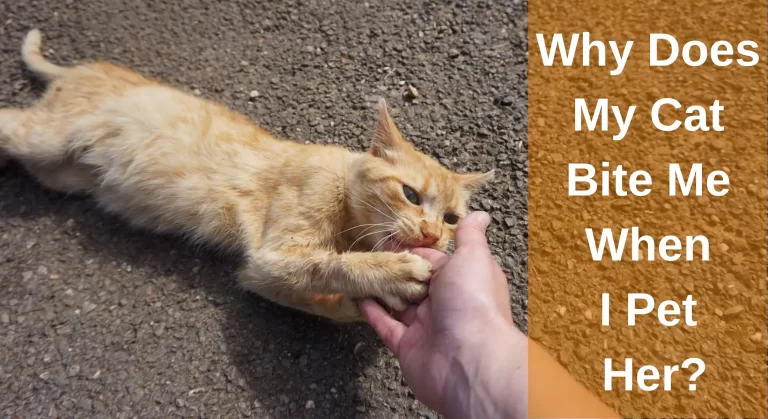Why Do Cats Shake Their Heads When Eating? [Answered]
Cats are known for their quirky behaviour, and I always pay attention to my cat’s behaviour to try to decipher what she is trying to communicate and what it signifies. Cats have many endearing characteristics, such as the ability to understand their tail motions and the reason they bake biscuits.
Recently, I’ve noticed that my cat shakes her head while feeding. I’ve started wondering why this is happening: Is this normal cat behaviour or should I be concerned? Shaking their head while eating may seem strange to us but it is a common occurrence among cats.
Cats shake their heads when eating due to the texture or taste of their food. They may also have dental problems or ear infections. In some cases, head shaking can be a sign of allergies or other health issues. If your cat’s head shaking is excessive or persistent it can be concerning.
In this article, we will explore why cats shake their heads when eating and whether it is something to worry about.
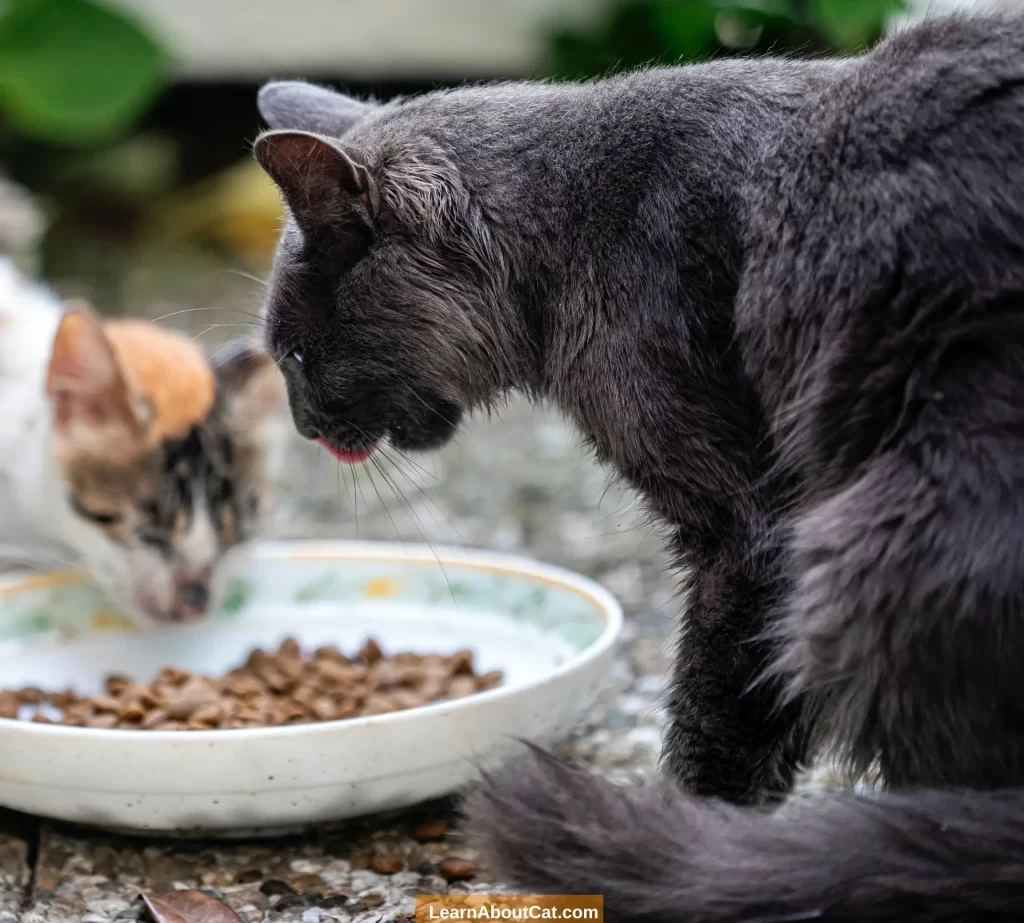
Normal Behavior of Cats While Eating
Before we delve into the possible reasons why cats shake their heads while eating, it’s essential to understand that it’s normal for cats to move their heads while they eat.
Cats are hunters by nature, and they use their paws and mouths to catch their prey. Moving their heads while eating is a natural instinct that helps them position their prey correctly and bite into it.
Additionally, they are known for grazing rather than eating large meals, meaning they prefer to eat small meals throughout the day.
Small bites and thorough chewing are two characteristics of cats’ eating habits. The front teeth are also used to tear off small pieces of food and the back teeth are used to grind them up. After swallowing, they often take a break to groom themselves before returning to their meal.
Reasons Why Do Cats Shake Their Heads When They Eat
While moving their heads while eating is normal for cats, excessive head shaking can be a cause for concern. Here are some possible reasons why cats shake their heads while eating:
Difficulty Eating
One possible reason why cats shake their heads while eating is that they are having difficulty eating. Various factors can cause this, including dental problems, mouth pains, and oral tumours.
- Dental Issues: Dental issues are a common cause of difficulty eating in cats. If your cat has dental diseases like gingivitis, unpleasant bulging gums, or tooth cavities, it may find it uncomfortable to chew its food, which can cause head shaking. All of these conditions are rather common in cats, and between 28 and 68 per cent of adults, cats lose teeth as a result of resorption lesions. This may lead to a loss of weight as well as a decrease in appetite and a reluctance to eat. This can cause them to shake their head as they try to dislodge food that’s causing them discomfort.
- Mouth Pain: In addition to dental issues, mouth pain can also cause cats to shake their heads while eating. Mouth pain can be caused by a variety of factors, including gum disease, oral infections, and injuries to the mouth.
- Oral Tumors: Oral tumours can also cause difficulty eating in cats. These tumours can cause pain or discomfort when eating, which may cause your cat to shake their head as they try to dislodge food that’s causing them discomfort.
2. Predatory Instincts
Another possible reason why cats shake their heads while eating is because of their predatory instincts. Cats are natural hunters, and even though they may be domesticated, they still retain some of their wild instincts.
Have you ever seen a wild cat eat a little prey? Naturally, they will start by looking for and searching for their victim. They capture it, but they don’t consume it right away. Instead, they begin to play with it, hitting it back and forth between their paws and teeth while shaking their heads. There is a serious cause for the head shaking, despite the fact that it all seems to be good fun.
One of these instincts is to shake their prey vigorously to ensure that it’s dead before eating it. This behaviour can carry over to their eating habits, and you may notice your cat shaking their head while eating as a way to mimic this hunting behaviour.
3. Dissatisfaction with Food Texture or Taste
Dissatisfaction is another possible reason why cat shakes head when eating.
Sometimes, cats may shake their heads while eating as a way to express that they don’t like the texture or taste of their food, just like we do when we’re saying no. They may be trying to inform you that they don’t like the food you’ve made by doing this. If your cat thinks this, it will be obvious because they will turn away from their food bowl and refuse to eat.
This behaviour may be more common in picky eaters to turn down their food or cats who are fed a monotonous diet. If your cat shakes its head only occasionally and seems otherwise healthy, it may just be expressing its dissatisfaction with a particular type of food.
If you suspect that your cat is shaking their head due to dissatisfaction with their food, try changing their diet to see if that resolves the issue.
Experiment with different types of food, textures, and flavours to find something that your cat enjoys. It might also help if you feed smaller, frequent meals.
4. Hypoglycemia
Hypoglycemia is another possible reason why cats shake their heads when eating.
Hypoglycemia occurs when a cat’s blood sugar levels drop below normal levels. This can cause a variety of symptoms, including shaking or trembling, weakness, lethargy, and seizures.
Your cat will experience a dangerously low blood sugar level at this point, making them feel weak and disoriented. If your cat is shaking their head while eating and also exhibiting any of these symptoms, it’s important to seek veterinary care immediately.
In some cases, hypoglycemia may be caused by an underlying health condition such as diabetes, liver disease, or pancreatic cancer. It can also occur in cats who are not eating enough or who have recently undergone surgery or other medical procedures.
Cats should never go longer than 12 hours without eating, as prolonged fasting can lead to hypoglycemia. Similar to humans, cats can get hypoglycemia from prolonged, intensive activity that depletes their glucose stores.
If you suspect that your cat is experiencing hypoglycemia, it’s important to monitor their behaviour closely and seek veterinary care as soon as possible. Your vet may recommend changes to your cat’s diet or medication regimen to help manage their blood sugar levels and prevent future episodes of hypoglycemia.
5. Enjoyment
Enjoyment is another possible reason why do cats shake their heads when they eat.
Each cat has its own quirks and preferences, just like humans. Some cats may find shaking their heads while eating to be an enjoyable sensation.
An example of this behaviour is seen in kittens as they frequently exhibit this behaviour when exploring their environment and experimenting with new things. As they grow older, some cats may continue to exhibit this behaviour as a way to add a bit of excitement to their daily routine.
Additionally, some cats may shake their heads while eating because they simply enjoy the sensation of the food in their mouth. This behaviour is especially common in cats who are eating wet food or treats that have a unique texture.
Check to observe whether your cat moves its head while eating if you feed it different kinds of cat food, such as wet food in the morning and dry kibble during the day.
The shaking may be a way for them to savor the flavor or texture of the food, similar to how humans might shake their heads when eating something particularly delicious.
Cleaning
Another reason why cats may shake their heads while eating is to clean their face and remove any food particles that may be stuck in their fur. This behavior is especially common in cats with longer fur or flat-faced breeds, such as Persians or Scottish Folds.
Other Reasons Why Cats Shake Their Heads
Everything is OK as long as head shaking only happens sometimes. But a head shakes every several seconds usually indicates health issues. The following factors may also cause them to shake their heads.
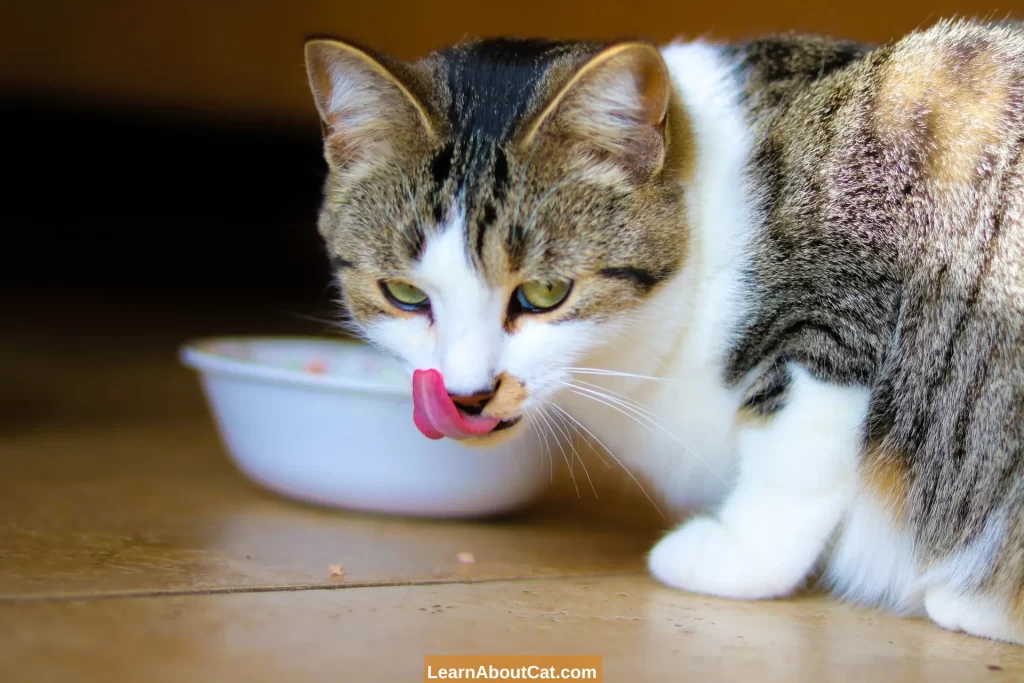
- Mites: Ear mites are a common problem in cats, especially those who spend time outdoors or in close proximity to other cats. There are tiny parasites living in the ear canal that can cause irritation, itching, and inflammation in the ear. If your cat is shaking their head frequently, it’s important to check its ears for signs of mites or other parasites.
Find Out: Cat Keeps Shaking Head But Has No Mites Why?
- Ear infections: Ear infections can occur when bacteria, yeast, or other organisms invade the ear canal. In addition to head shaking, other symptoms of ear infections in cats include scratching at the ears, redness or swelling, and a foul odour. VeterinaWhen your cat appears to have an ear infection, you should seek veterinary care immediately.
- Foreign bodies: Sometimes, cats may shake their heads as a way to dislodge a foreign object that has become lodged in their ear canal. Common objects include grass seeds, dirt, and other debris. If your cat is shaking their head excessively or appears to be in discomfort, it’s important to check its ears for foreign objects and seek veterinary care if necessary.
Keep an eye out for any more indications that your cat may be experiencing issues. Among them are a deficit in balance Itchy ears smelly ears or constant face rubbing.
In addition, if you try to examine your cat’s ears closely, you could see any of the following: Redness, swollenness or junkiness.
Is it Normal for My Cat to Shake His Head While Eating?
If you give your cat excellent food, it could shake its head in thanks. A study found that the behaviours your cat displays when eating are a sign of how much she appreciates the food.
In a nutshell, the action of your cat’s head shaking is entirely normal. Everything should be well if your cat isn’t displaying any additional symptoms.
How to Tell If Your Cat’s Head-Shaking Is Normal
It’s crucial to understand your cat’s normal behaviour to determine if head-shaking is normal or not. If your cat regularly shakes their head while eating, it’s likely normal behaviour. However, if you notice any of the following signs, it could be a sign of an underlying issue:
- Excessive head-shaking
- Difficulty eating
- Avoiding food altogether
- Swollen or bleeding gums
- Foul odour from the mouth or ears
- Discharge or redness in the eye
What to Do If You Notice Abnormal Head-Shaking
The best course of action if you notice your cat shaking his head abnormally is to consult your vet. They can perform a physical examination and determine the underlying cause of the behaviour. Depending on the cause, they may prescribe medication or recommend further treatment.
It’s essential to address any underlying health issues as soon as possible to ensure your cat’s overall health and well-being.
Preventing Head Shaking During Eating
While head shaking during eating is often a normal behaviour for cats, there are ways to prevent excessive shaking. The best way to care for your cat is to feed them food that is of good quality and appropriate for their age and nutritional requirements. Poor quality food can lead to dental issues, which can cause discomfort while eating and lead to head shaking.
Another way to prevent head shaking during eating is to provide your cat with clean and fresh water. The cat is notoriously picky about what it drinks, and it may refuse to drink water that does not appeal to them. Providing your cat with clean and fresh water can encourage them to drink more and aid in the digestion process.
As an example, cats prefer running water over stagnant water. When my cat is trying to drink water, she paws at her bowl to get the water going! Likewise, cats can be fussy with their food, just as they can be with their drinking.
Frequently Asked Question
Can food allergies cause cats to shake their heads while eating?
Yes, food allergies can cause cats to shake their heads while eating, along with other symptoms such as itching, scratching, diarrhea, or vomiting.
Why Does My Cat Tremble While She Chews?
Adult cats may struggle to eat if their lips are dirty or if something is stuck in their teeth. When eating too rapidly, your cat may experience an upset stomach or prolapsed stomach tissue, both of which can cause trembling. Even if your cat eats and drinks regularly, is in great condition, and has regular bowel movements, it still could lose its appetite.
So, try massaging organic coconut oil into the base of their hindquarters and tail before meals. As a result, your cat will become more at ease and eager for a tasty meal.
Final Words!
Understanding a cat’s shaking while eating requires paying attention to other behaviours that our pets exhibit. They either appreciate the food or there are some problems. We may have to admit that this is just one of the strange behaviours that cats have that we just don’t understand, so don’t worry about this behaviour as long as your cat isn’t displaying any other symptoms.
But if your cat displays signs of hypoglycemia or dental issues, schedule a visit with the doctor. Additionally, you may try gradually moving to different cat food that your cat likes if it is refusing to eat. Again, the best person to ask for guidance or to make sure that this isn’t related to another underlying medical condition is your veterinarian.
Who is Isabella?
My name is Isabella, and I am a dedicated and knowledgeable cat enthusiast. With years of experience caring for cats and a deep love for felines, I made a mission to help other cat lovers navigate the challenges of cat ownership.

